Cassava Flour Black Cake – A Twist on the Caribbean Classic
A rich Caribbean black cake made with cassava flour and rum-infused fruits. This cassava flour cake is a flavorful twist on the classic holiday favorite, bringing all the taste you love in a slightly new way. If you’re looking to switch up your traditional fruit cake or experiment with cassava flour in your baking, this version is absolutely worth trying.
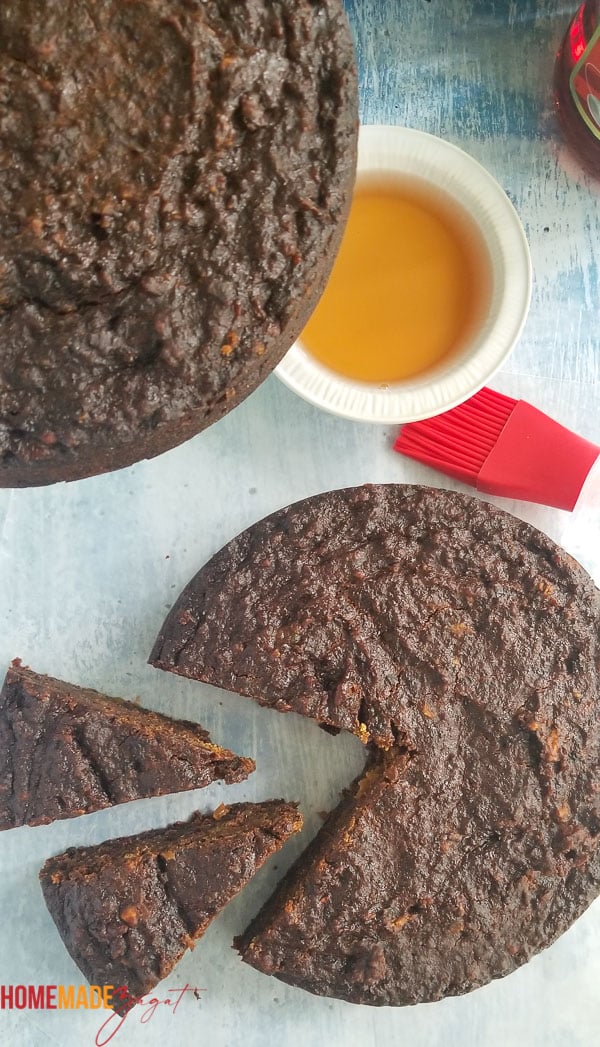
In many Caribbean homes, black cake is a must during the holidays. It’s dark, rich, and soaked in spiced rum-soaked fruits. Traditionally made with wheat flour, this version uses cassava flour instead, without losing any of that depth and texture.
Think of it as a new take on an old favorite. Same love, same vibes, just a slightly different spin. You can also check out my traditional Trinidad black cake recipe if you’re feeling nostalgic or just want to compare cakes.
This cassava flour cake fits right in on your holiday table next to a glass of sorrel or ginger beer, maybe even after a plate of Trini pastelles. It’s definitely that kind of cake.
How to make a cassava flour cake
Ingredients you will need
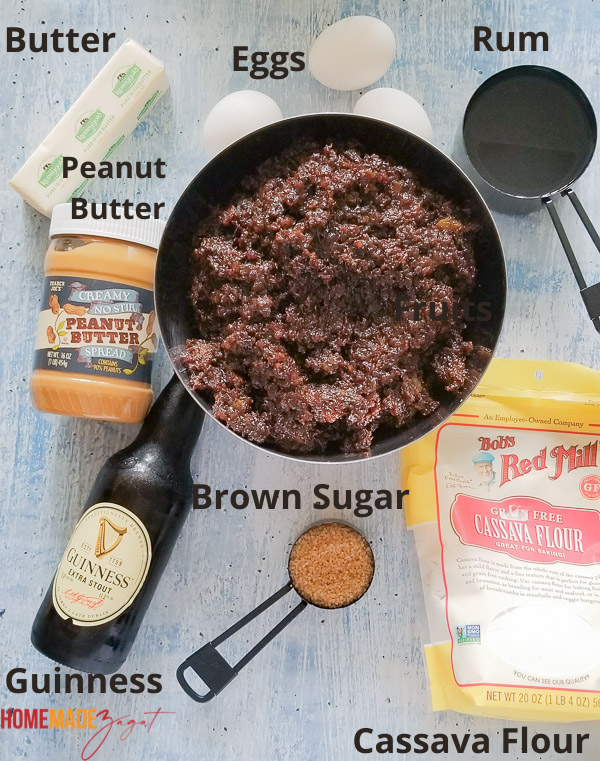
For the fruit mixture:
To get that signature black cake richness, you’ll need a good mix of dried fruits: chopped prunes, sultanas, currants, raisins, and mixed peel. These are soaked in a blend of dark rum and cherry brandy. The longer you soak them, the better the flavor. Feel free to prep this part well in advance.
For the cake batter:
This version uses cassava flour instead of traditional wheat flour. I always go with Bob’s Red Mill, it has a nice fine texture that works well in cakes. I’ve also used cassava in recipes like cassava dumplings and cassava and fish pie if you’re looking for more ways to cook with it.
You’ll also need eggs, brown sugar, butter, peanut butter (yep—trust the process), and a bottle of stout for that signature deep flavor. A splash of mixed essence and some browning bring that classic black cake profile together.
Instructions
- Start by prepping your soaked fruits. If you already have some on standby (you legend), you’re good to go. Just make sure you’ve ground up about four pounds worth to your preferred texture. If you’re starting from scratch, blend your chopped fruits with the rum and cherry brandy until smooth or chunky, however you like it.
- Preheat your oven to a low 225°F and grease two 8-inch pans. This cake takes its time to bake, so low and slow is key.
- In your mixing bowl, cream the butter, brown sugar, and peanut butter until smooth and fluffy. Don’t overmix, just enough to get everything well combined.
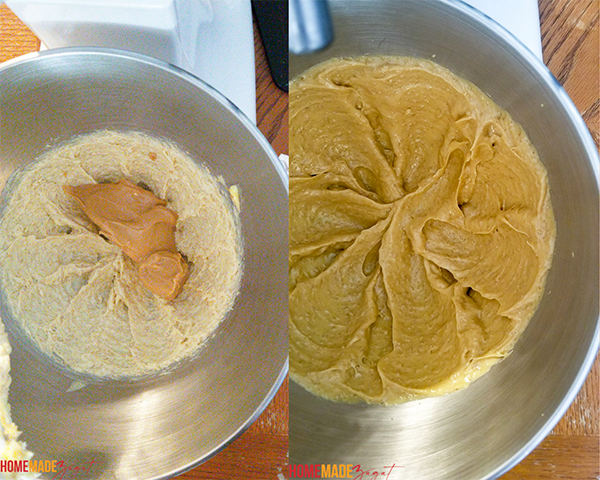
- Add in the eggs one at a time, making sure each one is fully mixed in before adding the next.
- Now comes the cassava flour. This stuff is light as air, so add it in batches and keep your mixer on low at first unless you want a flour storm in your kitchen. Once it’s mostly incorporated, you can turn the speed up a little to finish.
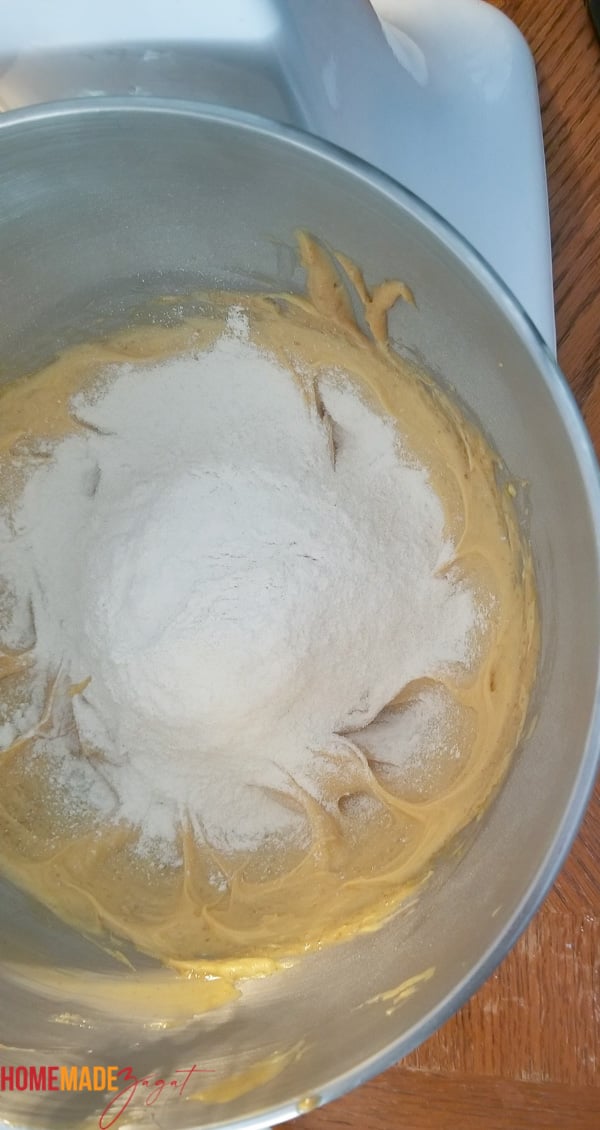
- Fold in your fruit mixture with a spatula. This will take a little elbow grease, cassava flour makes a denser batter than you might be used to.
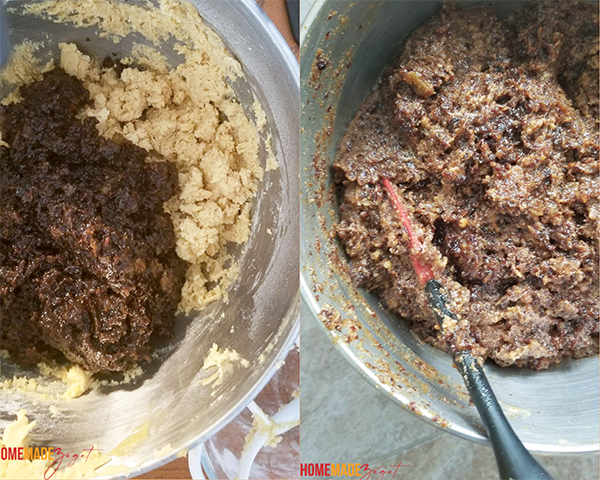
- Pour in your stout, mixed essence, and browning. Stir everything gently until well combined. Adjust the browning if needed to get that rich, dark color we love.
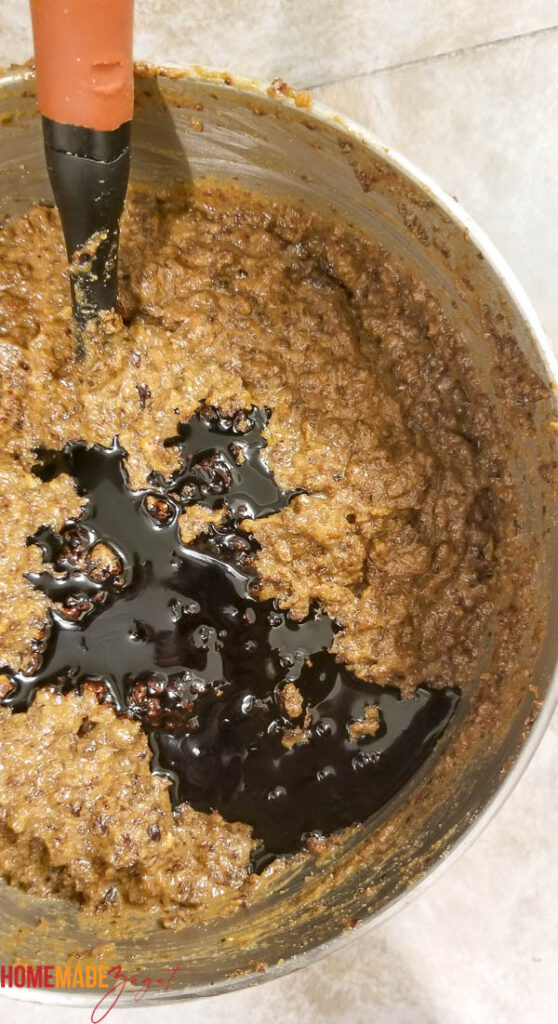
- Transfer the batter into your greased pans. The batter won’t rise too much, so fill them about three-quarters full. Smooth the tops with a spoon and get ready to wait. This cake takes about two to two and a half hours in the oven.
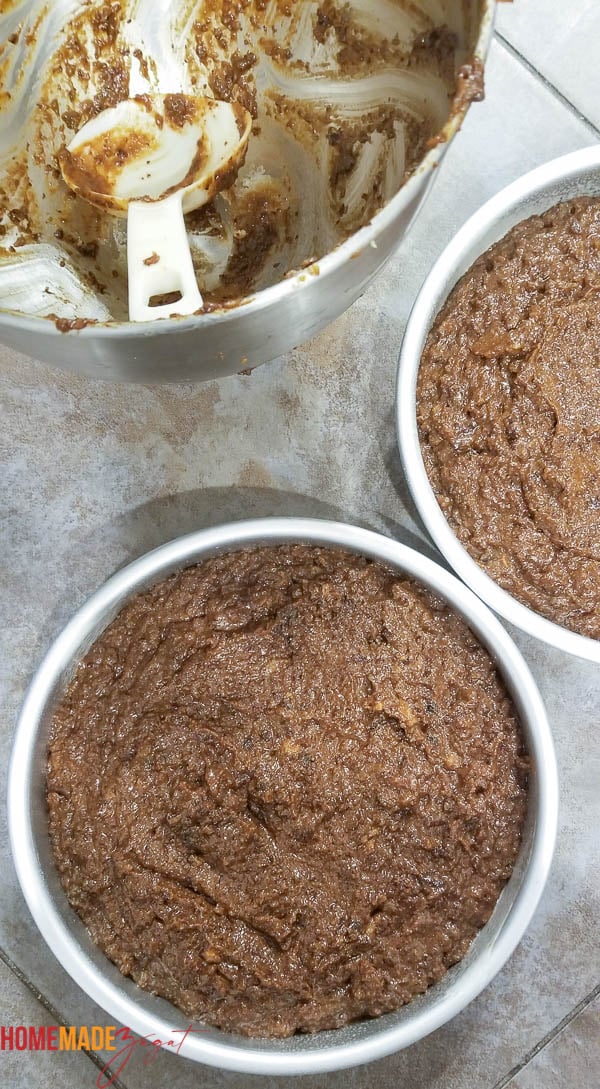
Tips for making cassava flour cake
- Use a good quality cassava flour. I always go with Bob’s Red Mill because the texture is fine and consistent. Some other brands can be gritty or behave a little differently in batters.
- Add the cassava flour in batches. It’s super light and tends to fly out of the bowl if you go in too fast. Start your mixer on low, then increase the speed once it’s mostly combined.
- Scrape the bowl, especially after adding peanut butter. That stuff loves to stick to the bottom. Don’t let clumps sneak past you—give it a good stir with a spatula midway through mixing.
- Don’t overmix the creamed butter and sugar. Just get it light and fluffy. Too much mixing and the butter can start to separate, which makes the cake heavier.
- Not a peanut butter fan or have allergies? You can sub in almond butter (if you’re just allergic to peanuts) or sunflower butter (if you need to avoid all nuts).
- Use a wooden spoon or spatula to mix in fruits. Once those fruits go in, step away from the mixer. Mixing by hand helps keep the batter from getting overworked and gives you better control.
- Don’t panic about the rise. This cassava flour cake won’t puff up like a sponge cake. That’s normal. It bakes low and slow into a dense, moist beauty.
- Go easy with the rum/brandy soaking. Too much and your cake will be soft and sappy inside. Baste lightly, let it rest, then baste again as it cools.
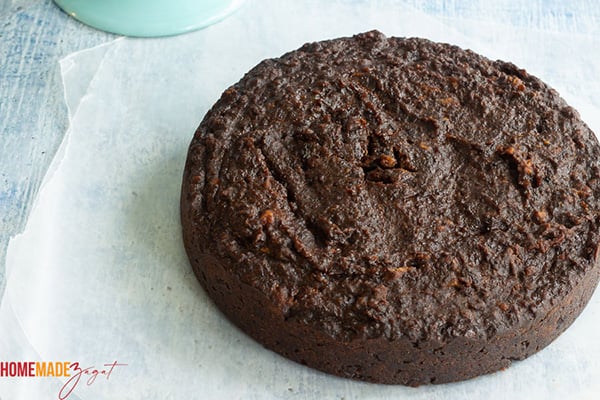
Storage
This cassava flour cake stores beautifully, just like traditional black cake.
- Keep it moist. If it’s been sitting for a while, a light baste of rum or brandy before serving brings it right back to life.
- Wrap it up well. Once your cake has fully cooled, wrap it tightly in plastic wrap. You can follow up with a layer of foil or place it in an airtight container or cake tin. This helps keep out moisture and preserves the rich flavor.
- Room temperature: It will keep well at room temp for up to a week, especially if it’s in a tin and regularly basted with a bit of rum or cherry brandy to keep it moist.
- Fridge storage: For longer storage (2 to 4 weeks), keep it wrapped and stored in the fridge. Just bring it to room temperature before serving so the texture softens up again.
- Freezer-friendly: Yes, you can freeze it, just like we do with wedding or anniversary cakes. Wrap it in a double layer (plastic + foil), and freeze for up to 6 months. When ready to serve, thaw it out overnight in the fridge or let it come to room temperature on the counter.
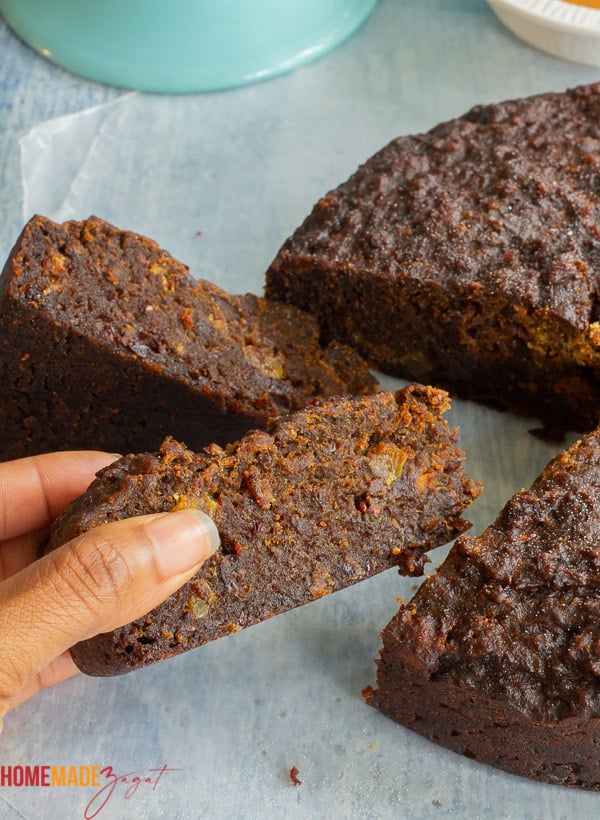
Holiday drinks to pair it with
Frequently Asked Questions
Yes! Like traditional black cake, this cassava flour version actually gets better after a couple days. Wrap it tightly in cling wrap and store in a tin. You can also keep it in the fridge or freeze it for longer storage, just bring to room temp before serving.
Cassava flour is made from dried and ground cassava root, while grated cassava is raw and moist. This cake uses cassava flour, so don’t substitute it with grated cassava or cassava meal—your texture will be totally off.
If you want to make this alcohol-free, it’ll no longer be a traditional black cake—but you can! Soak the fruits in grape juice or a mix of orange juice and spice-infused tea instead. Just be mindful of how much moisture you’re adding.
Yes! Cassava flour is naturally gluten-free, which makes this a great alternative for anyone avoiding wheat, but always check your other ingredients (especially browning and essence) to make sure they’re GF-certified if needed.
It adds moisture, richness, and a subtle nutty flavor that complements the fruits.
Recipe
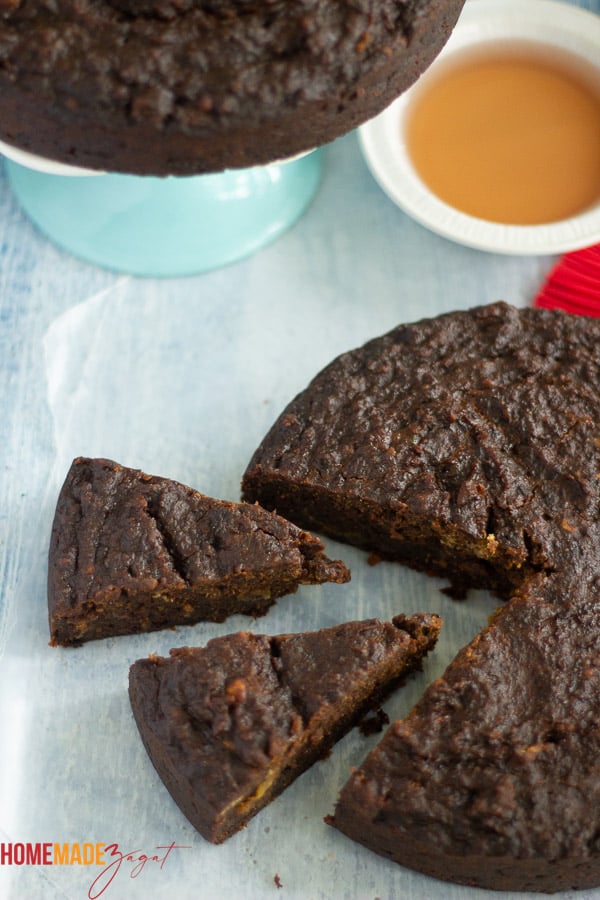
Cassava Black Cake (Best Cassava Cake Recipe)
Ingredients
Method
- Grind the soaked fruits and peel with the rum and brandy to your preferred texture. (See Note 1)
- Set your oven to 225°F. Grease two 8″ baking pans.
- Cream butter, sugar, and peanut butter until smooth.
- Beat in eggs one at a time, mixing well after each addition.
- Gradually add cassava flour in batches. (See Note 2)
- Fold in the ground fruit mixture.
- Stir in the stout, mixed essence, and browning until fully combined.
- Pour the batter evenly into the prepared pans.
- Bake for 2 to 2½ hours or until a knife inserted in the center comes out clean.
Nutrition
Notes
Note 2: Cassava flour is very light—add it in batches with your mixer on low speed to prevent it from puffing up everywhere.
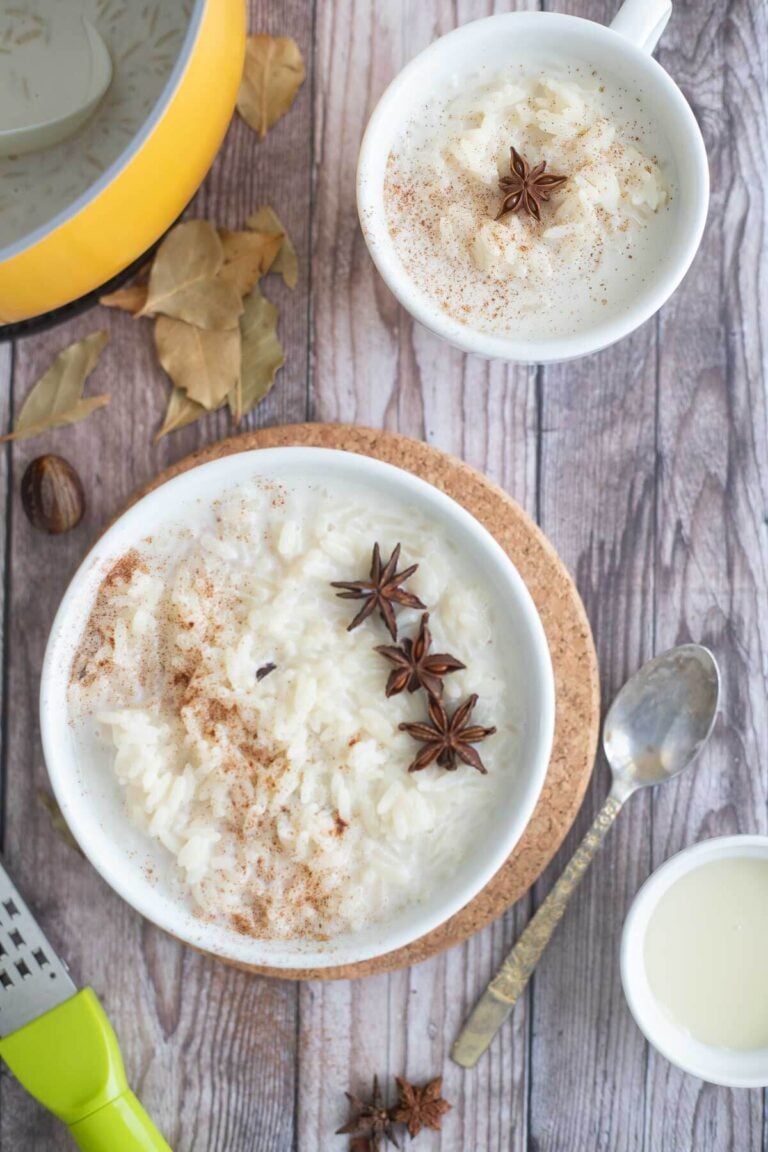
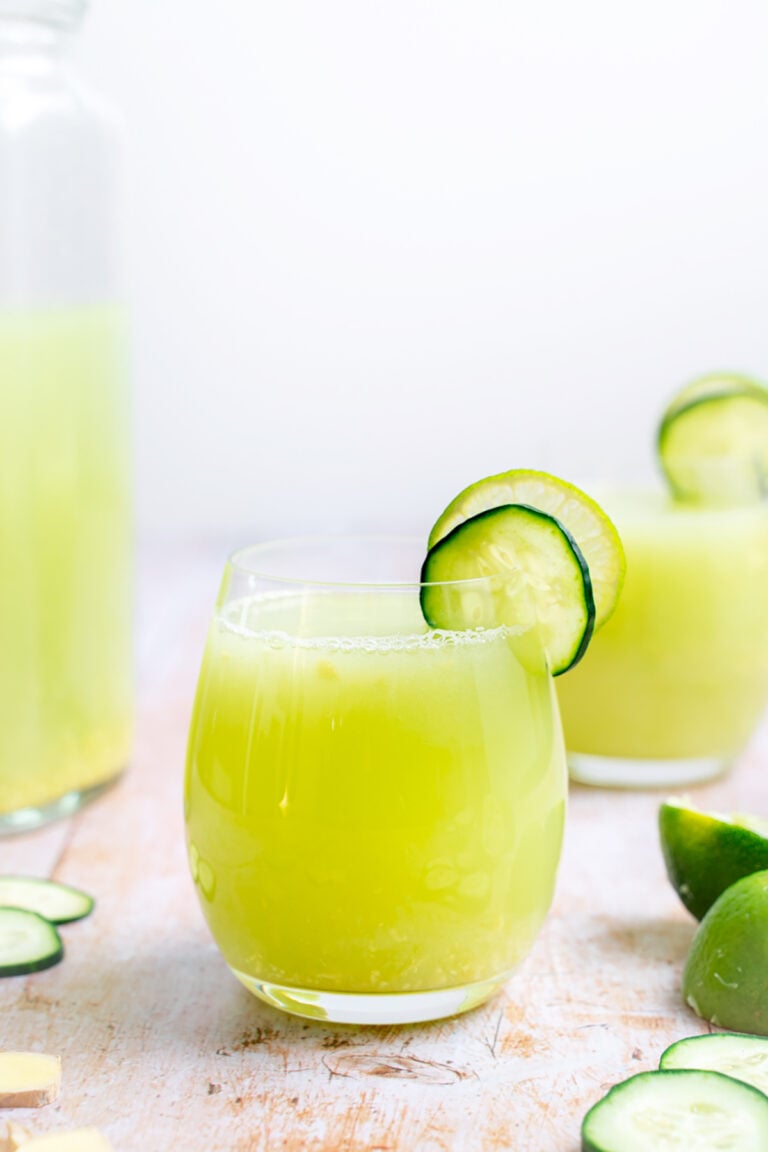

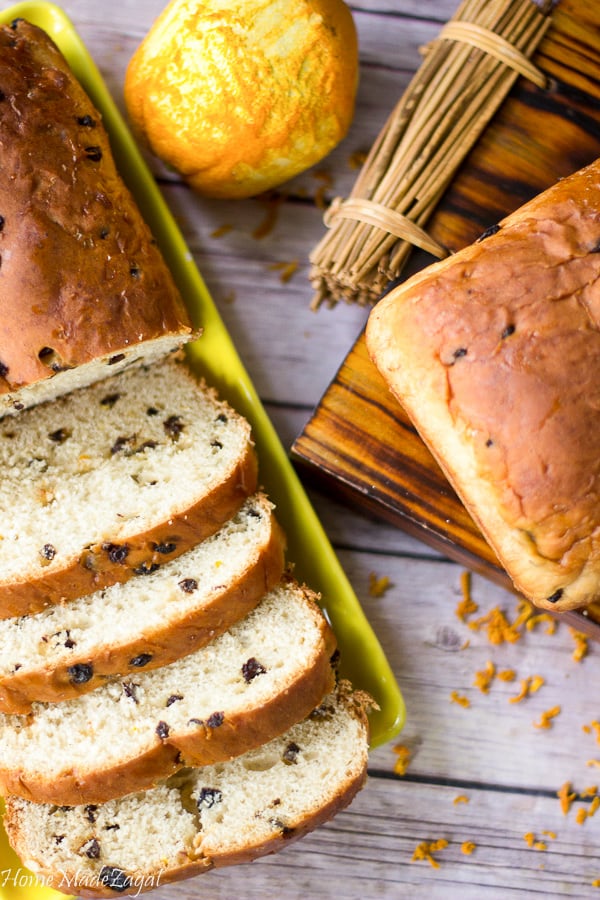
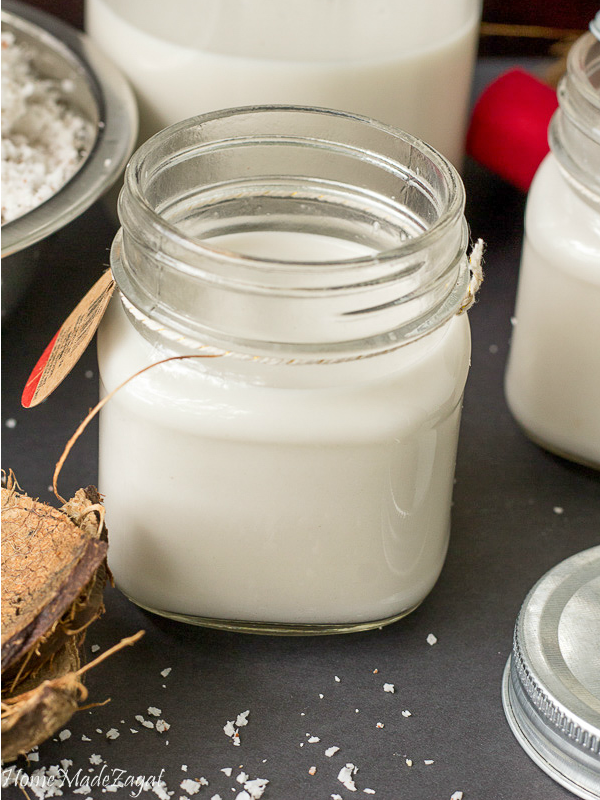
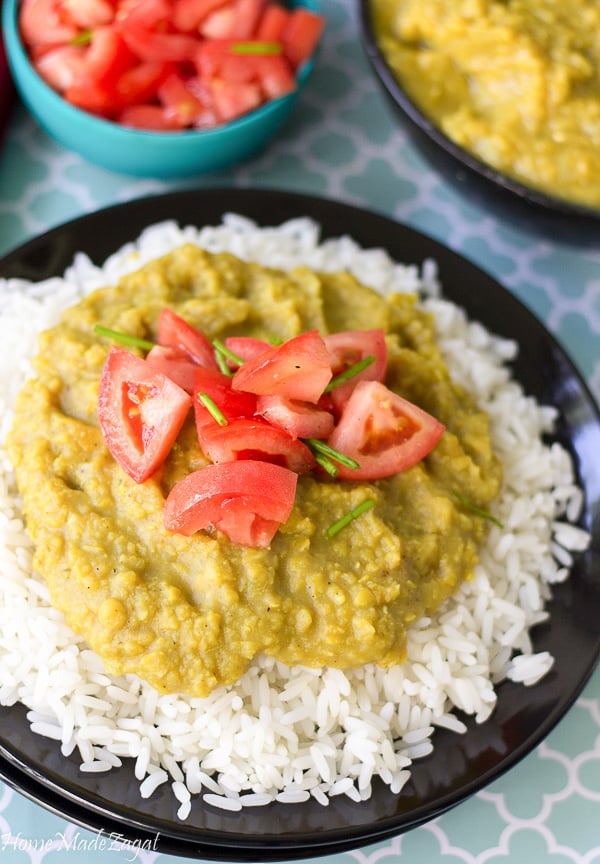
This cake is absolutely delicious! Thank you Renee!
Thank you!!